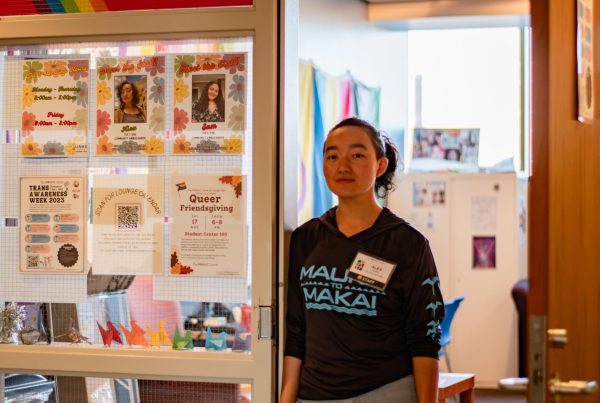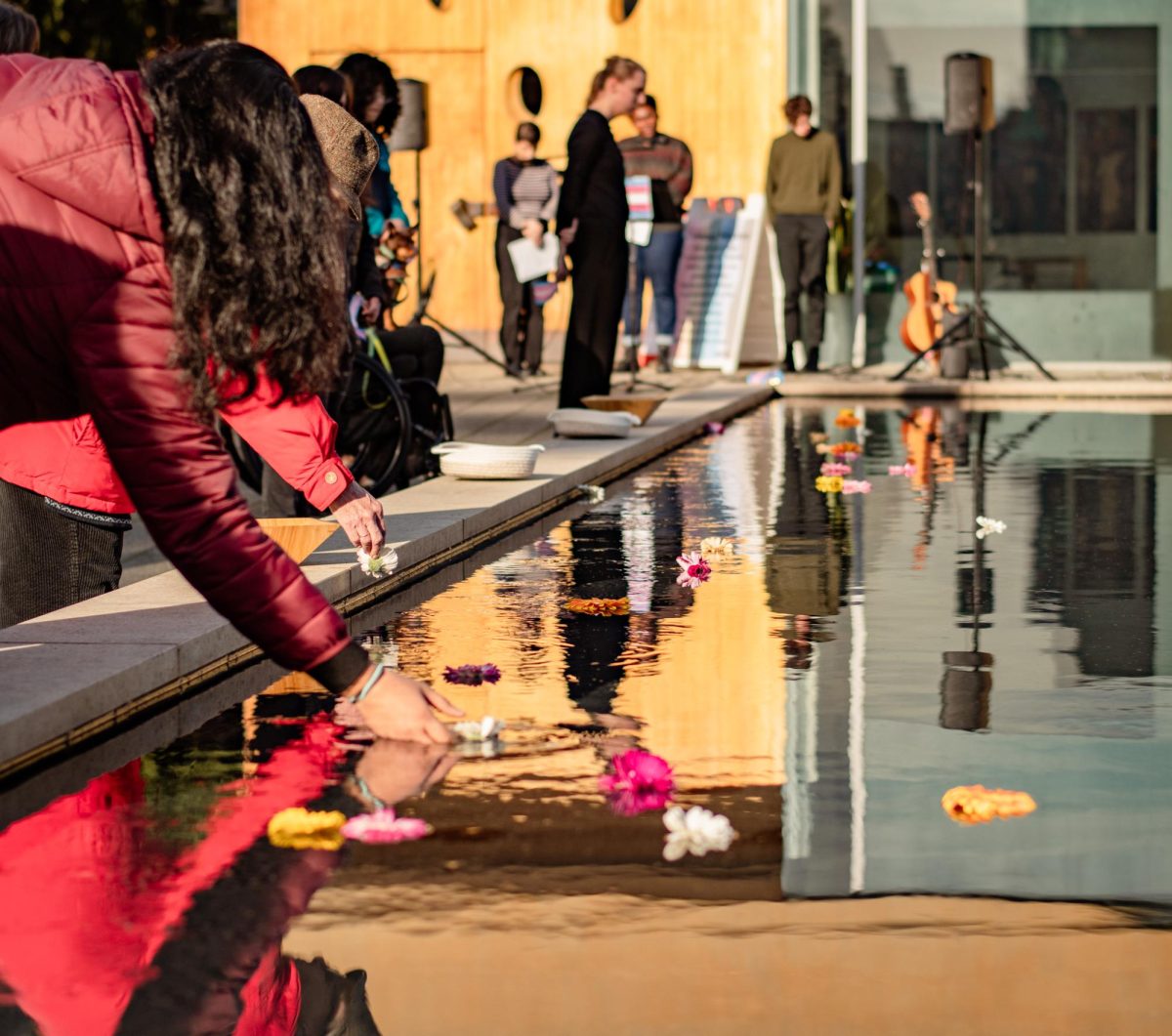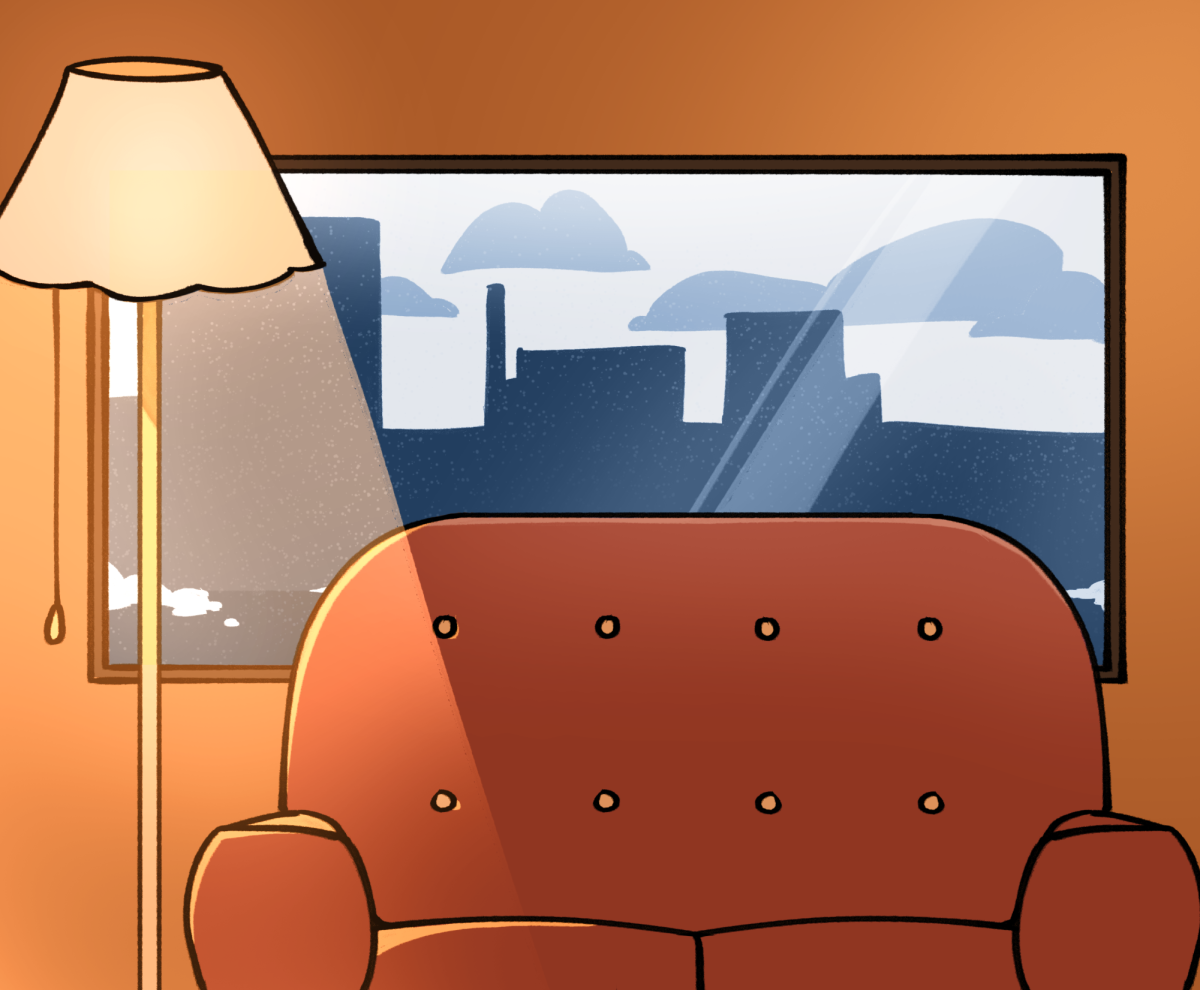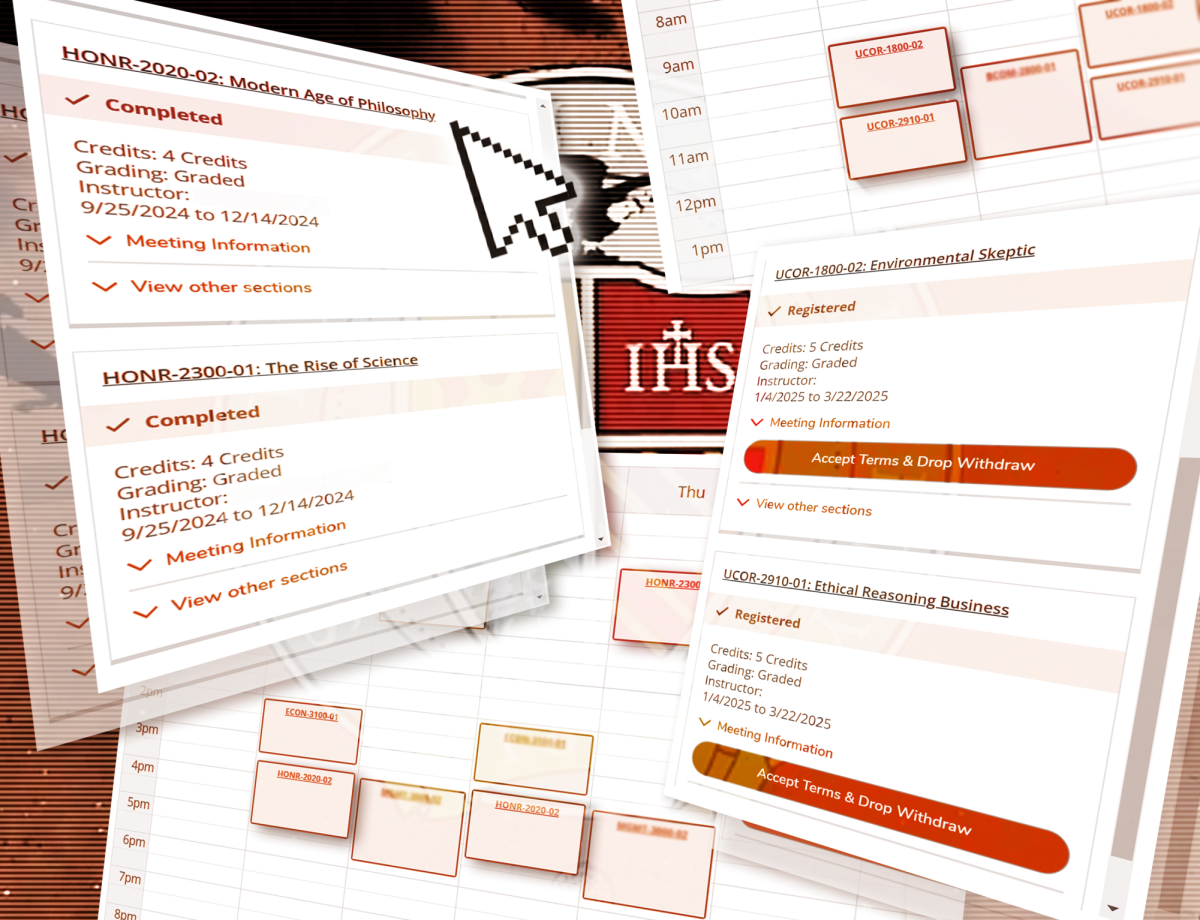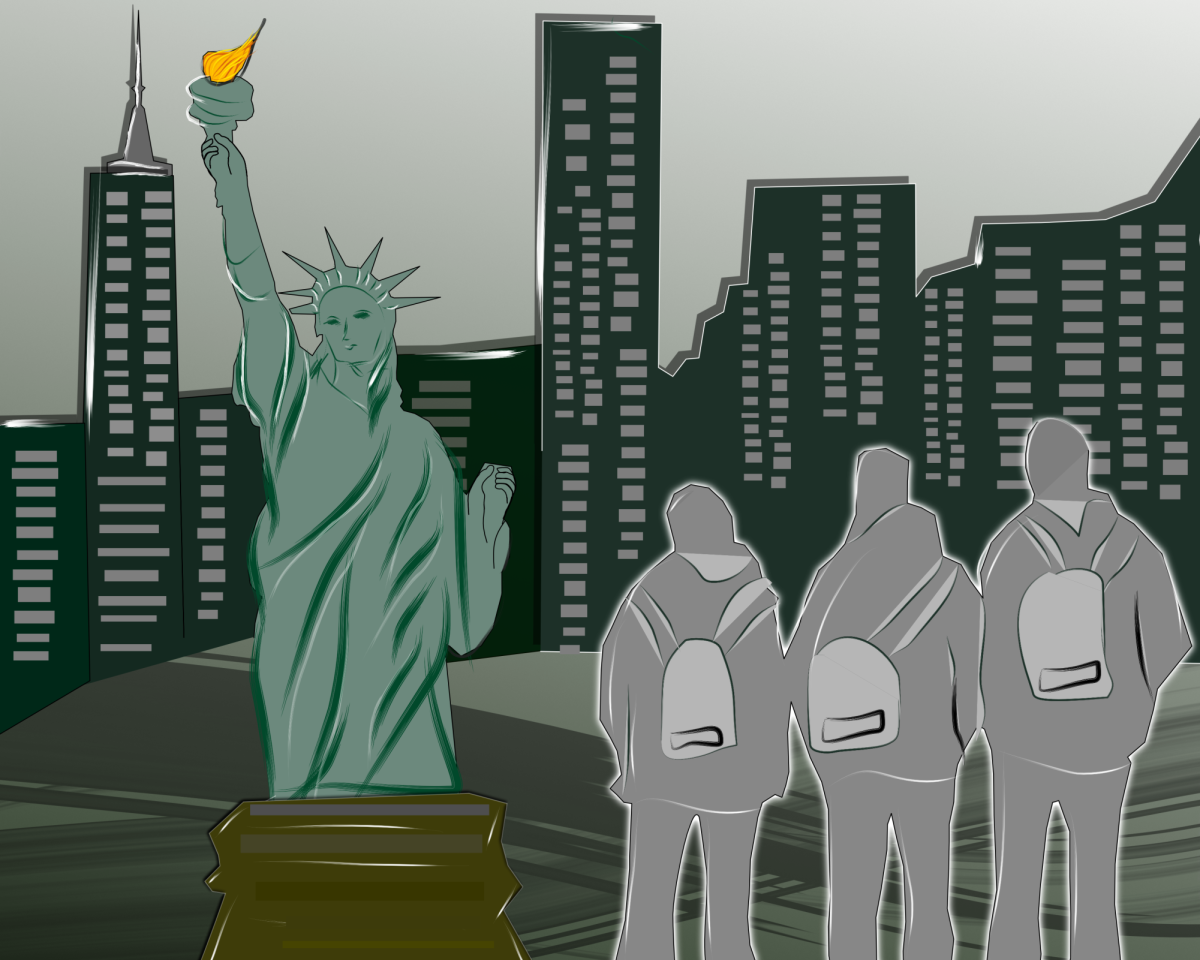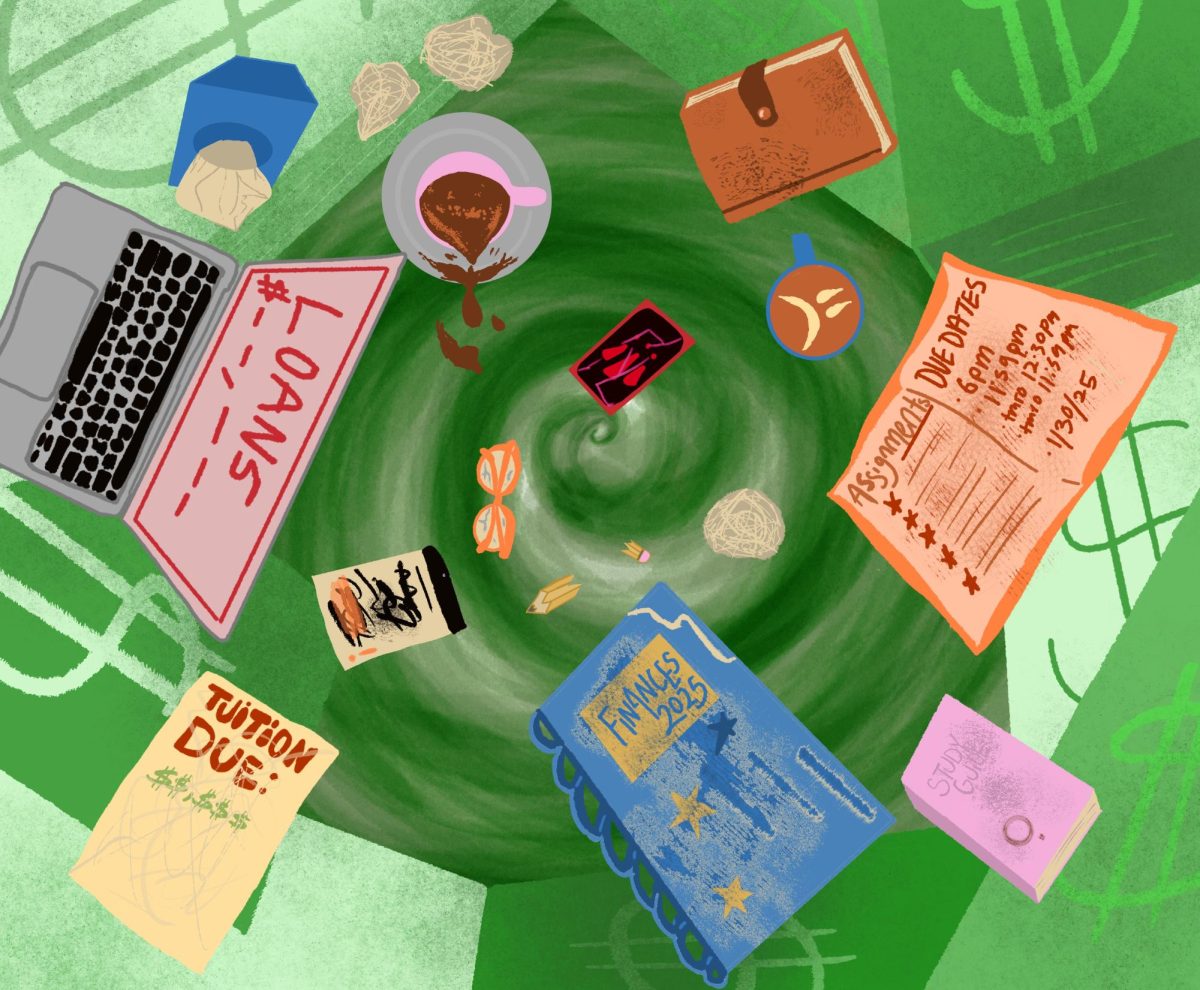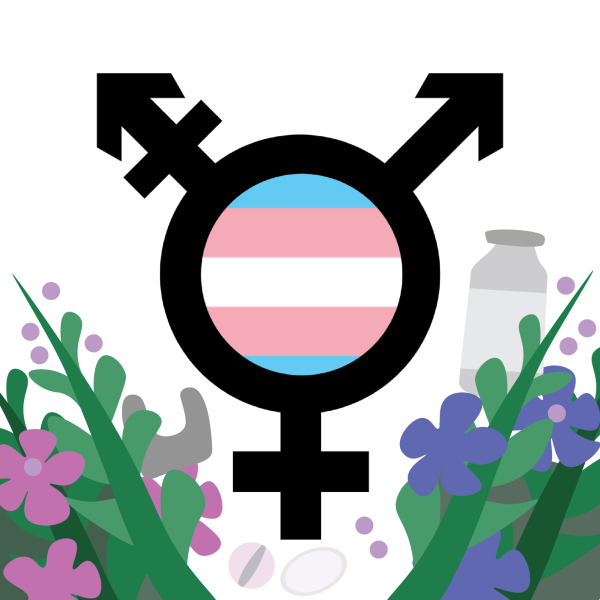
To highlight the lived experiences of the transgender, non-binary and gender nonconforming communities on campus, the MOSAIC Center hosted a variety of events from Nov. 13 to Nov. 20. to commemorate Trans Awareness Week. University Recreation, Campus Ministry and the Triangle Club partnered with MOSAIC for select events. The week aimed to celebrate and educate the Seattle University community in regard to trans people.
Assistant Director of MOSAIC AshLee Day expressed that their hope for the week is to lay the groundwork for people to continue to provide support for the trans community after the week ended.
“I think that living in the PNW, people sometimes overestimate how easy life is for queer people because we are surrounded by more affirming politics and people have moved here because they know it’s more accepting, but accepting is still a journey and there is still a lot of room left for growth,” Day said. “I’m hoping that this is not just a week, but a foundation setting for continued work to what a trans-inclusive and affirming community can actually look like.”
The university has brought Queer Friendsgiving and the Transgender Day of Remembrance Vigil to campus in past years, but new events were organized this year to encourage students and faculty of all identities to attend. The trans solidarity workshop and information session were put together in hopes that the Seattle U community would feel inclined to learn more about the trans community and how people can provide support. Day was particularly excited to curate these events as they were one of the organizers for Trans Awareness Week.
Aedan McCall, the event coordinator for the Triangle Club, spoke about how trans people have been the only ones in the past to steer the conversation about advocacy for their rights and inclusivity across all spaces.
“We can’t be doing all the work to speak up for ourselves forever. It can’t just be the trans community’s responsibility to demand recognition for our existence and support for the unique things we need that allow us to flourish. I think for a long time it has been,” McCall said. “Raising the awareness of trans people here helps people become more aware that there are other trans people who have different struggles all around the world. That brings more strength to the movement.”
While most of the events were open for everyone to attend, there were a few that were reserved for only the LGBTQ+ community, like Queer Friendsgiving. In partnership with MOSAIC, the Triangle Club has a tradition of hosting Queer Friendsgiving, as the holidays can be a stressful time for LGBTQ+ people depending on what their support looks like at home.
Maya Walthall, the president of the Triangle Club, talked about how reserving spaces, especially for queer people, is important for community building and making sure that people have safe spaces.
“It’s never okay to not have a space for people to exist and to be themselves. There is a sense of freedom of only having spaces for queer and trans people,” Walthall said.
With the information session, a solidarity workshop, trans experiences gallery walk, pride keychain making, an open gym for trans and non-binary people and Queer Friendsgiving for the LGBTQ+, the vigil concludes Trans Awareness Week. Sponsored by Campus Ministry, Transgender Day of Remembrance serves to remind people of the violence that trans people fall victim to.
Camryn Mata, the treasurer of the Triangle Club, thinks that people need to remember the difficulties trans people face, and how the relationship between trans and non-trans people needs to continue to be fostered.
“It’s important to not forget that those flags represent a life lost and that even after this event, trans people continue to be discriminated against and killed for their identity,” Mata said. “Trans Awareness Week builds up to the vigil. When you other trans people, the result is being a statistic or a flag and it shouldn’t be that way. If both groups can learn how to coexist, then maybe there won’t be that many flags next year.”
As Trans Awareness Week seeks to highlight the trans community on campus, educate allies and make people aware of the violence trans people face, having conversations about their experiences doesn’t end when the week does.
“Don’t turn your attention away from the good and the bad. There is trans joy out there but there is also trans suffering… Allow for your understanding of trans people to become as complex and varied as the people themselves are,” McCall said. “Do not let this week be the only week that you spend a good amount of time thinking and learning about your relationship to the trans community. We don’t go away after the week is over.”
